Coronavirus: Spain's funeral homes strike as cases rise
- Published
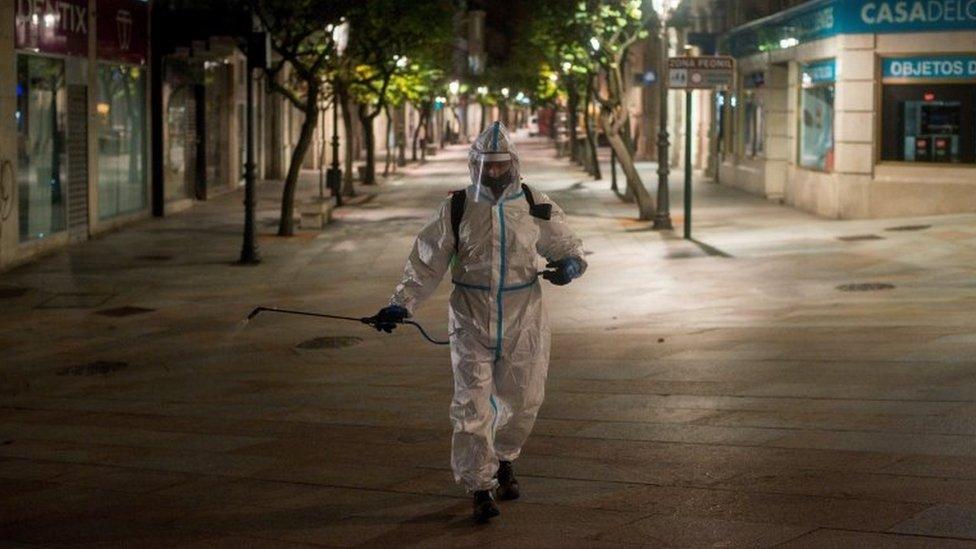
Spain, like many European nations, is seeing a surge in the number of coronavirus cases
Staff at funeral homes in Spain have gone on strike to demand more workers as coronavirus deaths continue to rise.
Unions say more staff are needed to prevent the delay in burials that was seen during the first wave of the pandemic in March.
Europe is grappling with a second wave as cases and deaths continue to rise.
A number of countries have introduced new measures such as curfews and lockdowns to try and bring infection rates down.
On Saturday, Austria and Portugal became the latest countries to announce new restrictions.
Workers at funeral homes across Spain took part in a strike on Sunday. The strike came on All Saints Day, when families usually visit the graves of loved ones.
One funeral home in Madrid told AFP news agency that it needed between 15-20 more staff to handle the surge in deaths. On Friday, 239 deaths were confirmed in the country by the health ministry.
In March, burials had a delay of about a week and cremations took place in cities hundreds of miles away, as funeral homes struggled with the demand.
Spain has recorded more than 1.1 million cases and 35,800 deaths since the outbreak began, according to data from Johns Hopkins University.
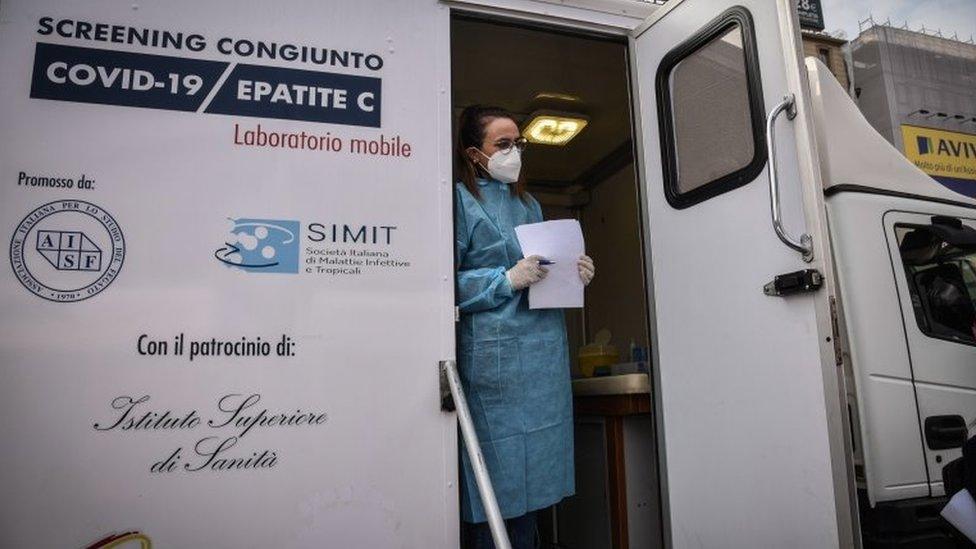
Italy's health minister said rising infection rates were "terrifying"
Elsewhere, in France Interior Minister Gérald Darmanin has reacted strongly to reports that a group of cadets at the national police school in Nimes held a clandestine party on the school's premises last week.
He described the reports as "totally unacceptable", external. "If this is confirmed, the pupils responsible will not be worthy of wearing the uniform and will be excluded," he said.
The news came as France reported 46,290 cases in 24 hours, compared to 35,641 the previous day. Another 231 people died over the same period, bringing the total to 37,019.
Italy is accelerating preparations for a further tightening of coronavirus restrictions in the country.
On Saturday, it reported 31,758 cases of the virus, a new daily record.
Health Minister Roberto Speranza warned that a nationwide lockdown appeared to be the only way to stop hospital wards becoming more crowded with coronavirus patients.
In an interview with newspaper, Corriere della Sera, Mr Speranza said the rising curve of transmission rates was "terrifying".
Restrictions are already in place in the country with cinemas, swimming pools, theatres and gyms forced to close.
Bars, restaurants and cafes have to stop table service by 18:00. However shops and the majority of businesses are still operating.
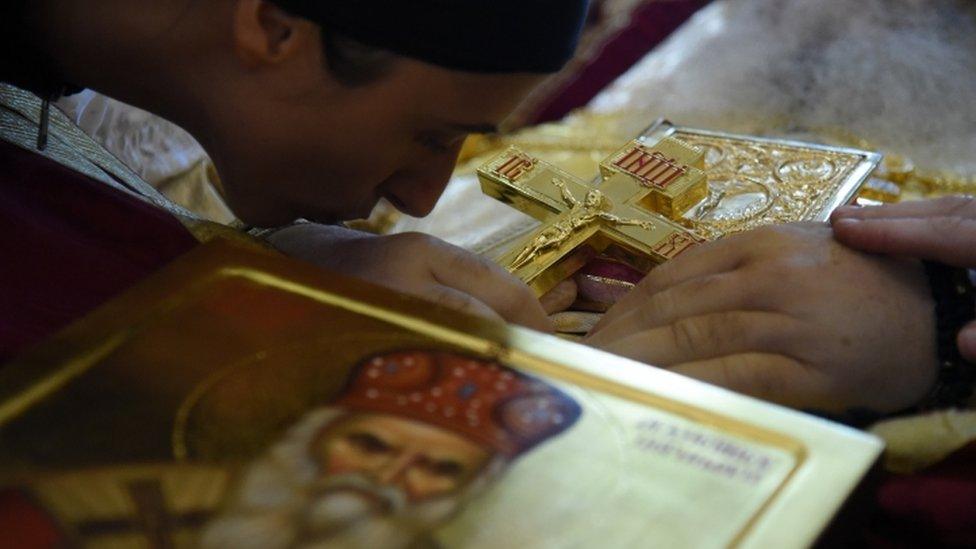
Mourners kissed the hands of Montenegro's religious leader, despite the fact that he died with Covid-19
In Montenegro, thousands of people attended the funeral of the country's leading religious figure, Archbishop Amfilohije Radovic, who died with coronavirus on Friday, aged 82.
Despite pleas from doctors to ban the funeral, the metropolitan's open coffin was paraded in front of crowds at the Serbian Orthodox cathedral in the capital Podgorica. Some mourners even touched or kissed his head or hands.
There are fears that the funeral will have made infection rates in the country - already among the highest in Europe - even worse.
Slovakia has tested nearly half of its population after announcing a plan to test everyone in the country over 10 years old.
Infections have soared in Slovakia and officials argue the only alternative would be a total lockdown.
Defence Minister Jaroslav Nad confirmed that 2.58 million people took the test on Saturday. Of those, 25,850 have tested positive and must quarantine.
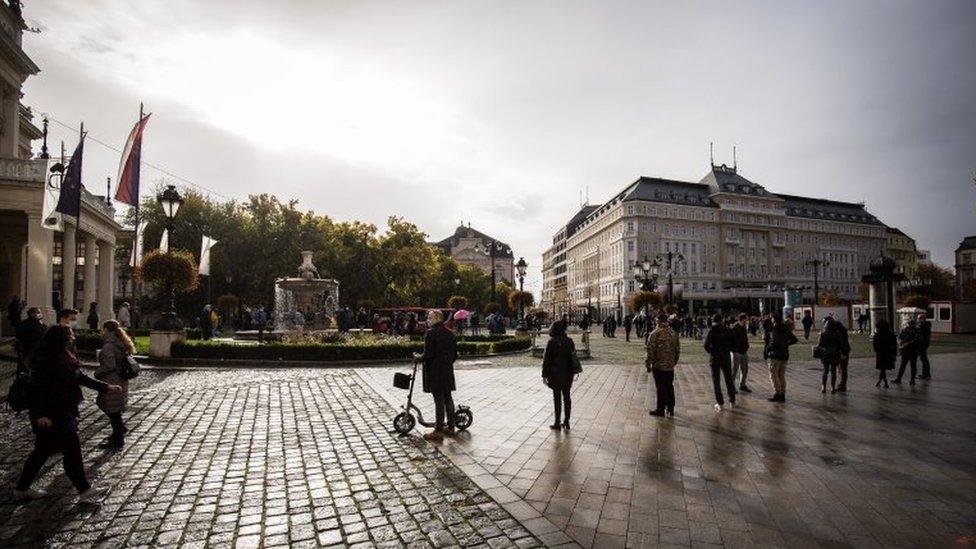
More than 2.58 million people in Slovakia have been tested
On Monday, new restrictions will come into effect in Germany. Daily infection rates have hit record highs over the past week.
On Saturday, the country recorded more than 20,000 cases.
Under the new measures, theatres, cinemas, swimming pools and bars must close. However schools and shops will remain open.
Speaking in parliament earlier this week, German Chancellor Angela Merkel warned of a long, hard winter ahead.

CORONAVIRUS VACCINE: How close are we?
LONG COVID: Who is more likely to get it?
ARTIFICIAL ANTIBODIES: How they could be used to fight the virus

- Published31 October 2020
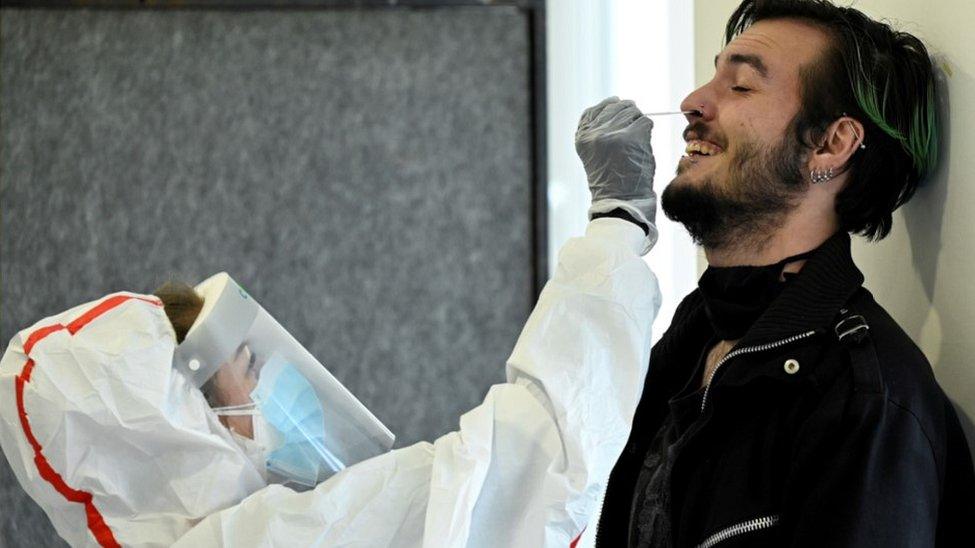
- Published5 July 2022
